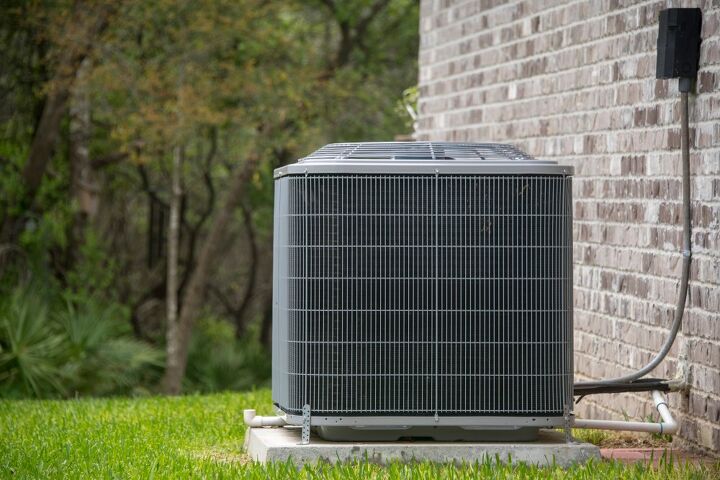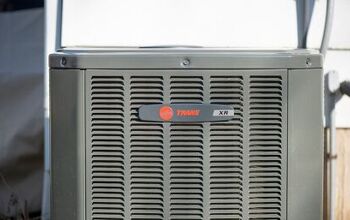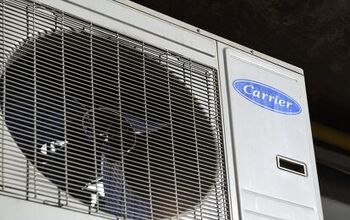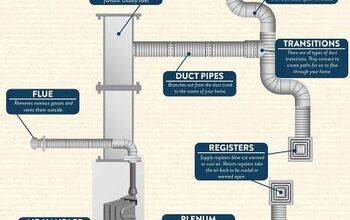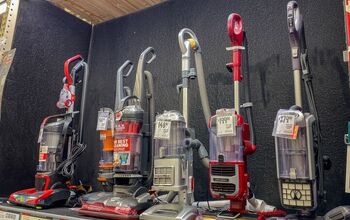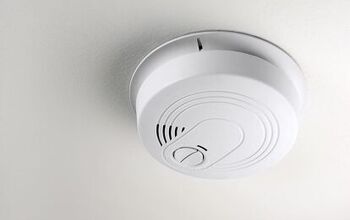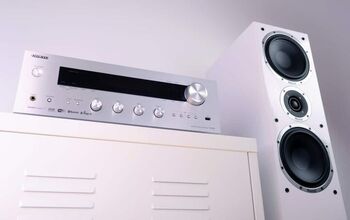Rheem Vs. Goodman: Which Air Conditioner Is Better?

Air conditioners will no doubt play an important role in your home. When you live in hotter climates especially, going without air conditioning means a very sweaty experience. But choosing the right unit is key as well.
Rheem and Goodman are two brands that have been compared of late. Rheem is the larger name of the two, having established itself in other areas. Rheem is one of the best, most durable, and most efficient models on the market. Goodman may not stack up in that respect, but it is a much more cost-effective option in comparison.
Do You Need a Heating and Cooling Contractor?
Get free, zero-commitment quotes from pro contractors near you.

Rheem vs. Goodman
Finding an air conditioner that can deliver in performance and durability is of the utmost importance. It is one of the most expensive appliances in your home, so getting the optimal value out of it is essential for homeowners.
There are a few key aspects to compare the two. This is your guide for Rheem and Goodman, as well as how they stack up against one another.
Company Histories
Rheem definitely holds the advantage in terms of history. Established in 1925, they did not become a company that developed HVAC products until the 1950s. Since then, they have become one of the most recognizable brands on the planet for their offerings.
Goodman, though not the household name that Rheem is, was not exactly founded yesterday. They became an air conditioning contractor in Houston, Texas beginning in 1954. By the time 1975 rolled around, Goodman had established itself as a successful contractor and looked to build HVAC equipment.
Rheem is headquartered out of Atlanta, Georgia and has distribution to more than 75 countries around the globe. Goodman was actually acquired by Daikin Industries, Ltd. Group back in 2012 and doesn’t have quite the reach that Rheem does.
Air Conditioner Quality
Rheem has made its name globally as a master of heating and cooling for both homes and businesses. Their products are created with the idea of optimal comfort. Goodman systems are created with many of the same specifications, though there is one important factor: SEER ratings.
SEER ratings combine a number of factors. That includes aesthetics, heating and cooling capacity, weather-resistant finishes, optimal airflow, and noise reduction. Goodman has earned a solid SEER rating of 18 but Rheem goes above and beyond with a 20.5 rating.
Features
There are three features in particular worth looking at in these two models. The humidity control, coils, and communication ability are all important aspects of an air conditioning unit. Here is how the two companies stack up with these features.
Humidity Control
Depending on where you live, humidity may or may not be a huge issue. The air not only becomes noticeably heavier, but there are implications with the various other systems within the home as well.
Both Rheem and Goodman offer humidity control. For both, the air conditioner fan will run at a reduced speed for the first five or ten minutes that the system is on. By running at a reduced speed, the evaporator coil can remove the humidity from the air.
Coils
This is another feature where the two are basically the same. Both make use of copper coils with aluminum fins. That is the industry standard, though there has been a plan to switch over to aluminum coils for future products.
Copper tends to be easily repaired whereas aluminum needs replacing entirely. That said, the industry as a whole is switching to aluminum. When that change happens, it is likely that both Rheem and Goodman will make the switch as well.
Communication Ability
Yet again, a feature shared by both Goodman and Rheem. The idea is that it reduces the total number of wires required to connect the entire system. The diagnostics controls within the setup communicate with the thermostat so that either the user or a technician can troubleshoot the issue.
Not every manufacturer has this function, though they will have other means of troubleshooting. That gives Rheem and Goodman an advantage over some of the others on the market in that regard.
Part Reliability
This is an area where Rheem may have a distinct advantage. They have a much larger manufacturing footprint, with factories in both the United States and abroad. That means they have access to some of the best technicians, engineers, and manufacturers in the entire industry. That all equates to a better, more reliable appliance.
Goodman follows industry standards when it comes to quality control, though their methods have not been acknowledged publicly. Rheem, meanwhile, builds its brand on being “Tested. Trusted. Tough.” You know that your air conditioner will stand the test of time if it is a Rheem.
After-Market Parts
Despite the improved reliability and durability of Rheem air conditioners, things can and will break. When it comes time to replace a component within your air conditioner, there are some that can be done in a DIY manner.
Both Goodman and Rheem have a vast array of after-market parts available from various distributors. Just be sure to check whether those parts are for high-efficiency models as they may require a different part model.
Warranty
Having a quality warranty is important as well. When something does go wrong, being able to call in a technician can result in a quick fix. Moreover, warranties provide peace of mind as well. It can mean a major difference in brand selection.
Goodman offers a lifetime compressor limited warranty as well as a 10-year unit replacement limited warranty. The latter is only effective if you register your product within 60 days of the initial purchase, so take advantage of that.
Rheem, meanwhile, has a little more comprehensive warranty. They have a 5-year parts warranty, 10-year conditional parts warranty, 5-year conditional unit replacement, and a 10-year conditional unit replacement. They have a more comprehensive selection than Goodman does, with tons of variety based on customer need.
How to Tell if Your Air Conditioner is Going Bad
Even with durable air conditioner models, there may come a time where it simply can do no more. When the time comes, it helps to be able to recognize when there is simply an issue that can be fixed or when the entire unit has to be replaced.
There are a few signs in particular that can tell you when it is time for a replacement. Troubleshoot the issue first to see if a repair can be implemented as that is both an easier and far less expensive option.
Higher Energy Bills
Take a look at your energy bills. You may have noticed that steadily over recent months your heating and cooling bills are higher. An incremental increase here and there is nothing to fret over. Should you notice a large leap, though, it could indicate that your unit is on the decline.
The increased utility bills mean that the air conditioner is working harder to do its job. That means that one of the components within it could be going bad. It could also be indicative of greater wear and tear.
Moisture Buildup
To some extent, all air conditioning units will create moisture. Those that are running properly, however, should be able to handle that moisture without you being any the wiser. But when moisture either leaks or is present around the air conditioner, then you are likely dealing with a refrigerant leak.
Refrigerant leaks can cause the entire system to underperform, leading to increased energy bills. Even worse, refrigerant leaks can be potentially dangerous for your family. Even if you notice a little water around the air conditioner, letting it persist can wind up being a major mistake.
Allowing moisture to pool around the air conditioner also runs the risk of mold growth. When mold becomes present, it poses respiratory issues. Do not ignore water buildup near or around your air conditioner.
Making Weird Noises
Most air conditioning units are relatively quiet. Sure, they make noise at startup and you probably can and will hear the fan going from time to time. Any noises otherwise may be indicative of a further issue or even the need for a replacement.
If you hear chattering, squeaking or grinding coming from your air conditioning unit, do not ignore them. That is not normal aging, it is indicative of a potentially major issue. If you notice strange sounds more than occasionally, it may be time to troubleshoot the issue or bring in a professional to take a look.
Limited Airflow
The job of your air conditioner is to cool your home. If it stops doing that effectively, your air conditioner may need replacing. It may also be the most obvious sign that there is something wrong with the air conditioner.
For the most part, these are the result of a clog somewhere in the system. When clogs occur, airflow becomes restricted and the cool air can’t reach the various rooms. Severe enough blockages can result in damage to the unit itself, so beware.
Do You Need a Heating and Cooling Contractor?
Get free, zero-commitment quotes from pro contractors near you.

Rheem vs. Goodman: What’s the Pick?
These are two very good brands of air conditioning units. If push came to shove, you could do no wrong with either of them. They largely have the same features in their base models and have many of the same internal components.
There are two major factors at play here: quality and cost. Both of these factors are important when choosing an air conditioner. When it comes to overall quality, Rheem is the unquestioned best choice. They have established themselves as one of the premier names in heating and cooling for a reason.
When looking for a more cost-effective option, Goodman is worth considering. Their units are quite a bit cheaper than Rheem, perfect for those on a budget. The quality is not necessarily bad, it just is not at the same level as Rheem.
Related Articles

Ryan Womeldorf has more than a decade of experience writing. He loves to blog about construction, plumbing, and other home topics. Ryan also loves hockey and a lifelong Buffalo sports fan.
More by Ryan Womeldorf



